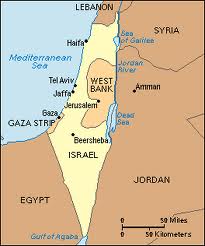For Mideast Regimes, U.S. Backing Means Absolute Power

America’s horses, Salam Fayyad and Mahmoud Abbas, I am sorry to say, have created an authoritarian police state that is actively suppressing people’s dissatisfaction with them.
A wave of popular uprisings in the Middle East is sending a clear message to those in power − and those who aspire to be in power − in the Arab world. Together with the release of several sets of leaked secret documents, they are making it clear that one should never bet on America’s horse.
“America’s horse” is the Arab leader who is backed by the United States and given a license to rule however he deems appropriate, as long as he doesn’t threaten Israel’s security or other American interests in the region. In return, he is allowed to abuse human rights and deny his people economic and political rights. With America’s sanction, and under the banner of fighting Islamic fundamentalism, he can crush any opposition that arises.
All through the 10 years I spent as a student in the United States, I dreamed of returning to Palestine and contributing to a future Palestinian state. Coming from a modest background in Hebron and having had the privilege of an education at some of the best universities in the United States, I felt an obligation to help my people, always mindful that I had been more fortunate than friends and siblings who stayed behind.
Yet, from the moment I returned, last September, I found a wall higher than the Israeli separation barrier blocking me from helping my Palestinian brothers and sisters. That wall was made up of America’s Palestinian horses: Palestinian Authority Prime Minister Salam Fayyad and President Mahmoud Abbas.
The moment I began publicly raising objections to the police state being formed in the West Bank, and the fear instilled in people who might dare to criticize the government, Fayyad’s intelligence services started harassing me, to the point where I no longer felt safe in the West Bank. Even now that I have returned to the United States, I still receive threatening phone calls for my criticism of Fayyad and Abbas. Several friends back home were arrested or called in for questioning by Palestinian intelligence officials over Facebook and Twitter activities that criticize Fayyad and Abbas.
What you read in newspapers about Fayyad’s technocracy based on interviews with him does not match what exists on the ground. I am guilty of being one of those who wrongly praised Fayyad’s work. In his office, Fayyad offers a very compelling theoretical approach to state building, but implementation on the ground couldn’t be farther from the principles of democracy, transparency, freedom and accountability. America’s horses, Fayyad and Abbas, I am sorry to say, have created an authoritarian police state that is actively suppressing people’s dissatisfaction with them.
Many before me have faced this same reality. In fact, what you see today in Palestine and in the Arab world in general is a reaction to the repressive policies of American horses against educated populations yearning for reform.
The Al Jazeera-Guardian “Palestine Papers” leak did not come about because two disgruntled former employees of the PA were encouraged by alleged CIA and MI6 operatives, as was asserted by Palestinian negotiator Saeb Erekat. On the contrary, it was the consequence of years of dissatisfaction among smart, able, Western-educated Palestinians who gave up lucrative salaries in the United States to return to their homeland and become involved in the Palestinian peace process and in building the institutions of the future state.
But their hard work and opinions were completely ignored by the PA’s leadership. As a result, many of them stopped working for the PA and, inspired by WikiLeaks, felt compelled to reach out to networks like Al Jazeera to shed light on the serious leadership flaws Abbas and his aides suffer.
There will be more leaks and further undermining of what remains of the PA’s credibility until there is a serious change in the decision-making process, so that it is more inclusive and representative of the people.
The United States and Western countries must reconsider their approach toward the regimes of the Middle East. It will no longer suffice for America’s horse to use the banner of moderation and Western values, and the need to fight Islamists, to crush all opposition. After all, everyone in the Arab world knows that this is not how America chooses its leaders and treats its political opposition.
This is a crucial moment for the United States, which needs to think long and hard about its interests in the region, through the prism of the needs and wants of the Arab masses, not by gambling and hedging bets on this American horse or that one. The more time it and Israel waste by not supporting the young Arab voices calling for political reform, the less likely they will be to find an ally in these revolutionaries once they take over their own destiny.
The lesson to be learned is that America’s horse can’t win the race. Has President Obama learned this lesson? We will know by the way he handles Egypt − and Palestine − and by what message he sends to the Arab masses yearning for political freedom. Until then, all bets are off.
Fadi Elsalameen is a fellow with the New America Foundation’s American Strategy Program. He is also director general of the palestinenote.com and diwanpalestine.com Internet newspapers in English and Arabic.

